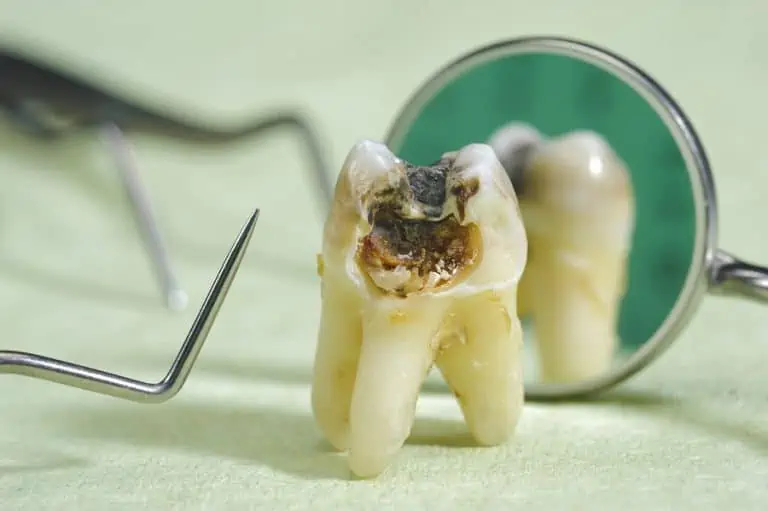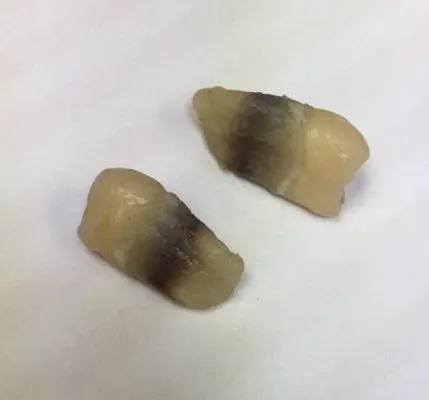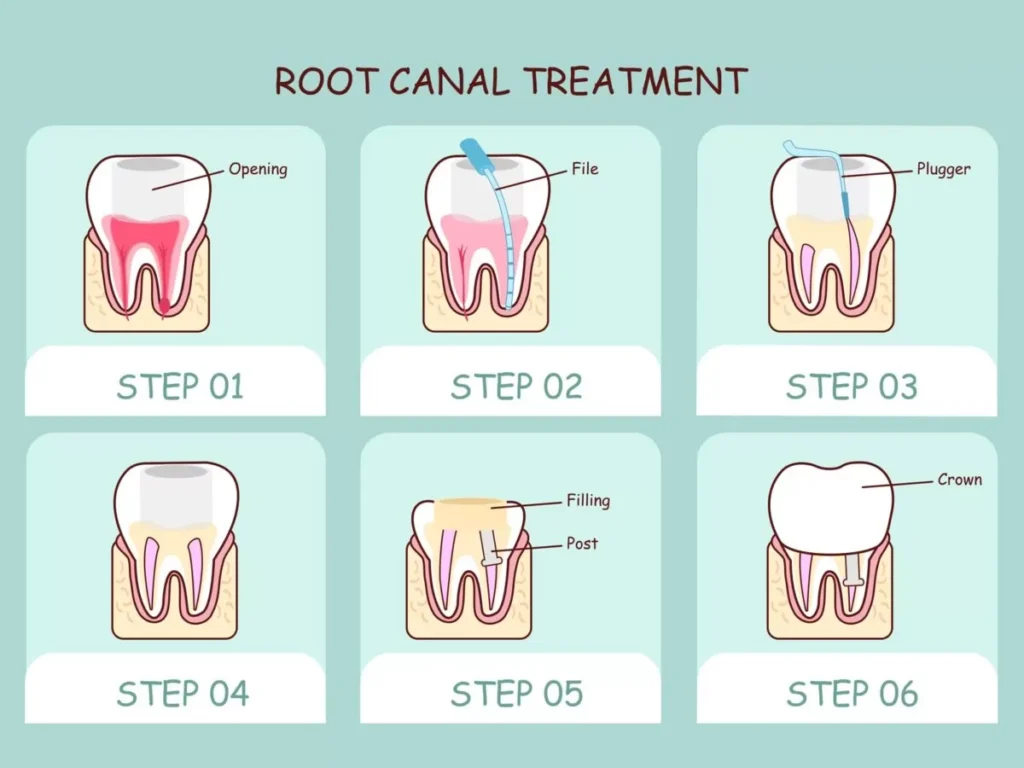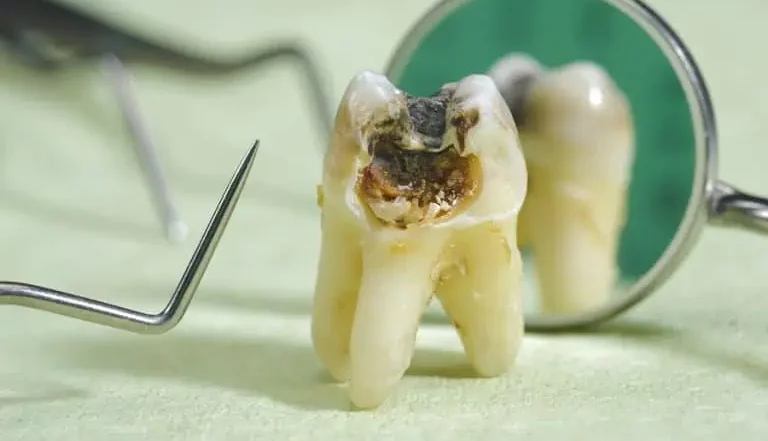
The third molars of your teeth, better known as wisdom teeth, are a topic of much discussion and debate due to the discomfort and pain they can cause when they become impacted. When it comes to the health of your wisdom teeth, it is important to be aware of any changes or unsual symptoms in your teeth, including discoloration.
Have you ever noticed a darkened or black appearance on one of your wisdom teeth and wondered what’s causing it? A black wisdom tooth is a cause for concern as it may indicate the onset of decay or damage to the tooth. When you have a black wisdom tooth or notice that the tooth is turning a shade darker, visit your dentist as soon as possible to determine the cause of the discoloration.
In the rest of this article, we will explore the possible causes of a black wisdom tooth, the potential consequences if left untreated, and the treatments recommended by a dental professional. Whether you are experiencing a black wisdom tooth yourself or simply want to learn more about dental health, this article will provide you valuable insights to help you maintain your oral health. So let’s dive in and explore the mystery of the black wisdom tooth!
What Causes Black Wisdom Tooth?
A black wisdom tooth is essentially a wisdom tooth that has turned black in color. The cause of the discoloration must be identified as a black wisdom tooth indicates a serious dental problem that requires prompt treatment.
The discoloration of your wisdom tooth can be caused by a variety of factors including:
- Tooth decay: If the tooth has been affected by dental caries or decay, it may turn black in color. Decay occurs when bacteria produce a weak acid that eats away at the tooth enamel, causing a cavity to form. Over time, the decay progresses to the dentin, leading to a potential infection of the tooth pulp.
- Staining: Certain foods, beverages, or habits, such as drinking coffee, tea, or red wine, or using tobacco products, can cause staining on the tooth surface. This is due to the sticking of colored chemical compounds (e.g tannins) on to the teeth. Stained wisdom teeth may appear black, brown, or yellow.
- Trauma: An injury to the tooth or the surrounding gum tissues can cause sufficient internal bleeding to occur within the tooth. The damage to the blood vessels and nerves can cause the tooth to darken, leading to the formation of a black wisdom tooth. Examples of trauma include accidents, injuries from contact sport, and even aggressive tooth brushing.
- Infection: An infection of the wisdom tooth or gums can cause the tooth to turn black. This happens when there is an untreated cavity or a gum disease such as gingivitis or periodontitis. This causes the tooth to die and turn black in color.
- Medication: Certain medications, such as the tetracycline antibiotic, can cause staining of the tooth. This occurs when the tooth is exposed to tetracycline during tooth mineralization or calcification; the tetracycline binds to the calcium ions in the teeth, causing the stain to develop internally within the tooth. While the discoloration usually occurs in the front or anterior teeth, the molars of the teeth will also suffer from staining albeit at a lighter shade.
- Genetics: In some cases, genetics may play a role in tooth discoloration. Some people are born with teeth that are naturally darker in color, which may include the wisdom teeth.
It is important that you identify the root cause of the black wisdom teeth immediately and receive the appropriate treatment. Consult a dentist immediately as they are able to diagnose the underlying cause and recommend the appropriate treatment plans.
What Happens if Black Wisdom Tooth is Left Untreated?
If a black wisdom tooth is left untreated, it can lead to a variety of dental problem.
First and foremost, if the black wisdom tooth is caused by decay, it will continue to spread, leading to extensive decay in the tooth. This can cause serious pain as well as swelling of the gums. When the wisdom tooth is not promptly treated, the decay progresses to the dentin. As the dentin is softer than the enamel, the decay progress at a much faster rate. Eventually, the decay reaches the tooth pulp, the innermost layer of the tooth where the nerves can be found. This can deteriorate to pulp necrosis, an irreversible condition where the pulp tissue dies. When pulp necrosis happens, you may not be able to feel hot or coldness in the wisdom tooth as the nerves are all dead.

An infection of the wisdom tooth could spread to other areas of your mouth and even into your bloodstream. In severe cases, the infection can spread to other areas of the body, leading to health issues such as sepsis or even death. An untreated black wisdom tooth can also cause the formation of cysts and tumors, which can damage the adjacent teeth and as well as the bone underneath.
You may be interested in: When Can I Use a Straw After Wisdom Teeth Removal and Why?
Secondly, neglecting a black wisdom tooth, particularly if the discoloration is due to plaque and tartar buildup, can contribute to the development of gum disease. Early-stage gum disease, or gingivitis, is characterized by red, swollen, and bleeding gums. If left untreated, it can progress to periodontitis, which can lead to gum recession, tooth loss, and even damage to the jawbone.
Lastly, an untreated black wisdom tooth can contribute to persistent bad breath (halitosis) and an unpleasant taste in the mouth, which can be socially embarrassing and affect your overall quality of life.
How to Treat a Black Wisdom Tooth?
Depending on the severity of the black wisdom tooth, different treatment plans can be applied to mitigate or eliminate the discoloration.
In mild cases where only black spots or minimal staining is observed, the cause of the staining is first determined and removed to prevent further progression. The black spot or stain is then grinded (ground) down with professional cleaning and replaced with a tooth-colored bonding material or veener. Alternatively, a professional teeth whitening treatment can help to restore the tooth’s natural color. This restores the appearance of the wisdom teeth while allowing it to function normally as a molar teeth.
If the discoloration is caused by stains on the surface of the tooth, teeth whitening products can be an effective tool in removing these surface stains. These products contains a significant concentration of hydrogen peroxide which can break down the stain-causing substances into smaller molecules, thereby making the color less concentrated and visible to the naked eye.
If the tooth is infected or has serious tooth decay, a root canal treatment may be necessary. This involves the removal of the infected or damaged pulp from the tooth, the filling of the cavity with a biocompatible material, and the sealing of the tooth with a dental filling or crown to protect it from any further damage.

While there are numerous treatment options available, most doctors prefer an extraction of the black wisdom tooth. This effectively prevents any infection from spreading to the surround gum tissue or adjacent teeth while eliminating the source of the problem. Furthermore, many dentists and oral surgeon recommend the removal of your wisdom teeth as a preventive measure in the event that the tooth becomes impacted.
How to Avoid Black Wisdom Tooth?
It is important to practice proper dental hygiene and take preventive measures to prevent the formation of a black wisdom teeth. Here are some tips you can follow:
- Establish a thorough oral care routine: Brush your teeth with a fluoride toothpaste and a soft-bristled toothbrush for two minutes at least twice daily. Make sure to floss every day to eliminate plaque and food debris between your teeth and around the gumline. If you find traditional floss challenging to use, particularly near your wisdom teeth, a water flosser can be a helpful alternative.
- Use correct brushing and flossing methods: Ensure that you are utilizing appropriate techniques when brushing and flossing. Position your toothbrush at a 45-degree angle to your gums and gently brush using circular motions to clean all tooth surfaces. When flossing, slide the floss cautiously between your teeth and curve it around each tooth to eliminate plaque effectively.
- Schedule regular dental appointments: See your dentist for routine check-ups and professional cleanings at least every six months or as advised by your dental professional. Regular visits help identify and address dental problems early, such as tooth decay or gum disease.
- Consume a healthy and balanced diet: Eating a nutrient-rich diet is vital for maintaining optimal oral health. Reduce your consumption of sugary and acidic foods and drinks, which can contribute to tooth decay and enamel damage. Instead, choose fresh fruits and vegetables, lean proteins, whole grains, and dairy products.
- Stay well-hydrated: Drinking adequate water is essential for a healthy mouth. Water helps wash away food particles and bacteria while also promoting saliva production, which helps neutralize acids and prevent tooth decay.
- Steer clear of tobacco products: Using tobacco, whether smoking or chewing, can cause tooth discoloration and increase your risk of tooth decay, gum disease, and oral cancer. Quitting tobacco can enhance your oral health and prevent the darkening of your wisdom teeth.
- Minimize consumption of staining foods and drinks: Foods and beverages such as coffee, tea, red wine, and dark-colored berries can cause tooth staining. Limit your intake of these items, and rinse your mouth with water or brush your teeth after consuming them to help reduce staining.
By adopting these preventive practices and maintaining proper oral hygiene, you can lower the likelihood of developing black wisdom teeth and ensure a healthy, radiant smile.
Takeaway
To conclude, black wisdom teeth can be a sign of a serious dental problem that requires prompt treatment. If left untreated, black wisdom teeth can lead to pain, an infection of the tooth pulp, gum disease, damage to neighboring teeth and in some cases, health issues. While there are multiple treatments available to treat black wisdom teeth, it is important to determine the cause of the discoloration as well as the severity of the issue.
If you are unsure of the condition of your black wisdom tooth, seek advice from your dentist as soon as possible to determine the root cause of the condition and prevent further complications.







